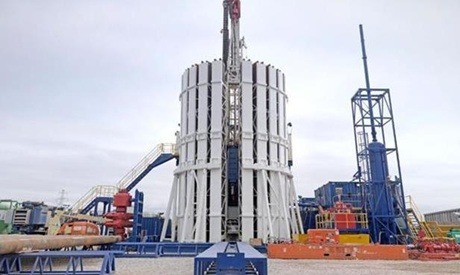Fracking ‘unlikely’ to contaminate water
29 Apr 2016

A study of the abandoned Selby coalfield in Yorkshire suggests fracking is unlikely to pose a pollution risk to freshwater supplies.
Conducted by Paul Younger from the University of Glasgow’s School of Engineering, the study found no evidence to suggest that new fractures in the earth would lead to leaked fracking fluid contaminating underground freshwater aquifers.
“Although the Selby coalfield didn’t use hydraulic fracturing of the kind suggested for the recovery of unconventional oil and gas deposits, the site offers a useful analogue to help us learn more about what could happen if fracking were to take place in strata of similar age in the UK,” Younger said.
Given that potential contaminants would need to travel a kilometre or more to reach an aquifer, there is no way that they would be able to cover that distance during the short space of time an upward hydraulic connection would be created
Paul Younger from the University of Glasgow’s School of Engineering
He added that in order for water to become contaminated, a connection between the aquifers and the fractured shale rock would need to be created at the point of fracturing.
“Even where fracture connections were present, contamination could only occur if the water pressures favoured upward movement of fluids. In fracking, upward hydraulic gradients are only created for a few hours at the beginning of the process, after which the boreholes are depressurised altogether in order for gas or oil to be extracted.
“Given that potential contaminants would need to travel a kilometre or more to reach an aquifer, there is no way that they would be able to cover that distance during the short space of time an upward hydraulic connection would be created.”
Younger also pointed out that shale gas developers have a “major” vested interest in preventing water contamination.
“[Water contamination] would result in a great deal of expense to pump it away before gas production could begin,” Younger said.
However, opposition to fracking is fierce, particularly in the north of England where several proposed fracking sites are situated.
On Wednesday, protestors occupied a field in Lancashire that shale gas firm Cuadrilla plans to explore. The protest, conducted by Greenpeace UK, was fronted by anti-fracking campaigner and actor Emma Thompson.
“The people of Lancashire are our inspiration for this unusual, illegal protest,” Thompson said in a statement.
“In Lancashire public opposition to fracking is overwhelming, just as it is in so many other parts of the UK. But it looks like David Cameron’s government could still give the industry the go ahead here. That’s not what I call democracy – and I know that there are so many who agree.”
Readers' Comments
There are no comments on this article, leave a comment below to have your say
Have Your Say
The comments have closed for this article

